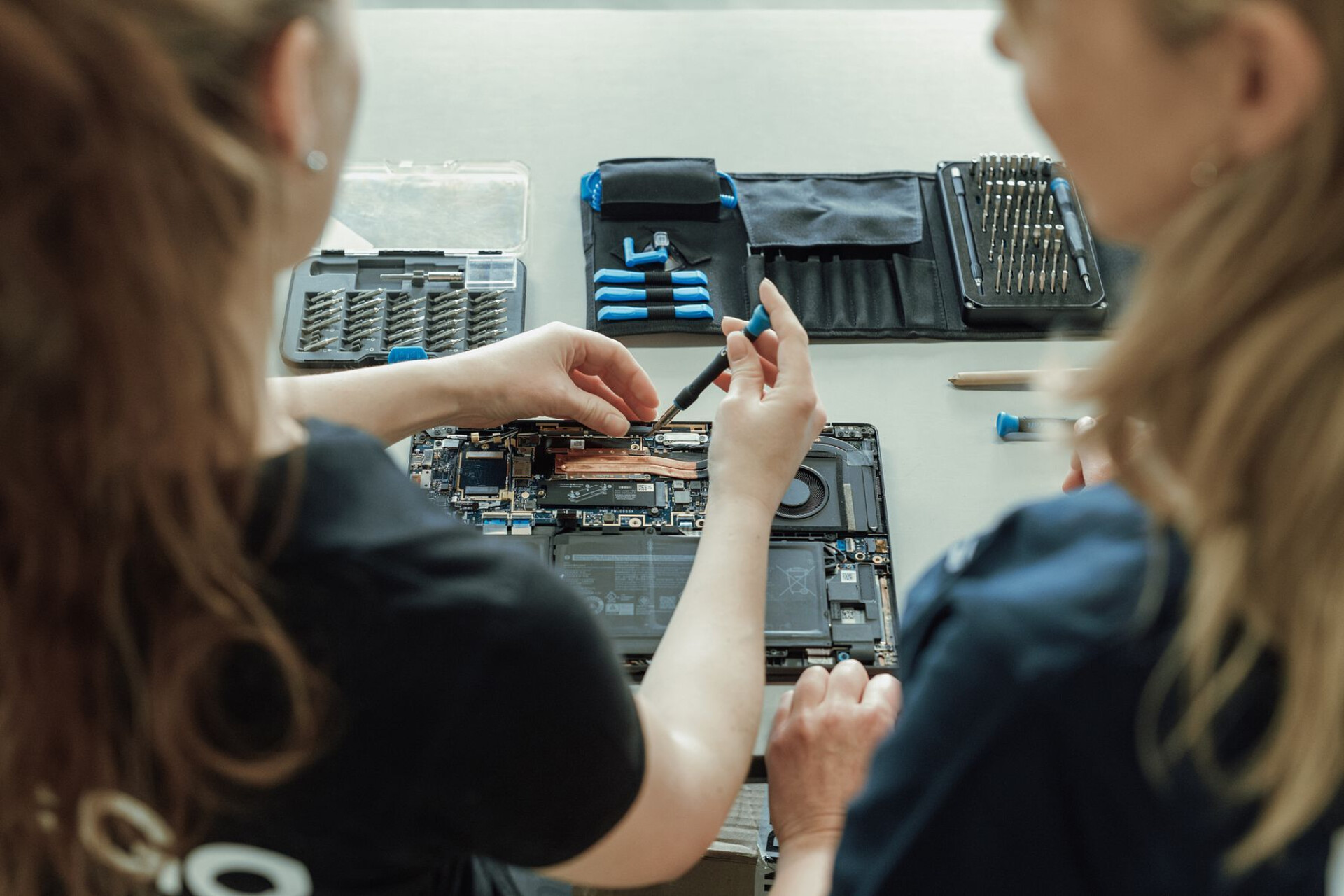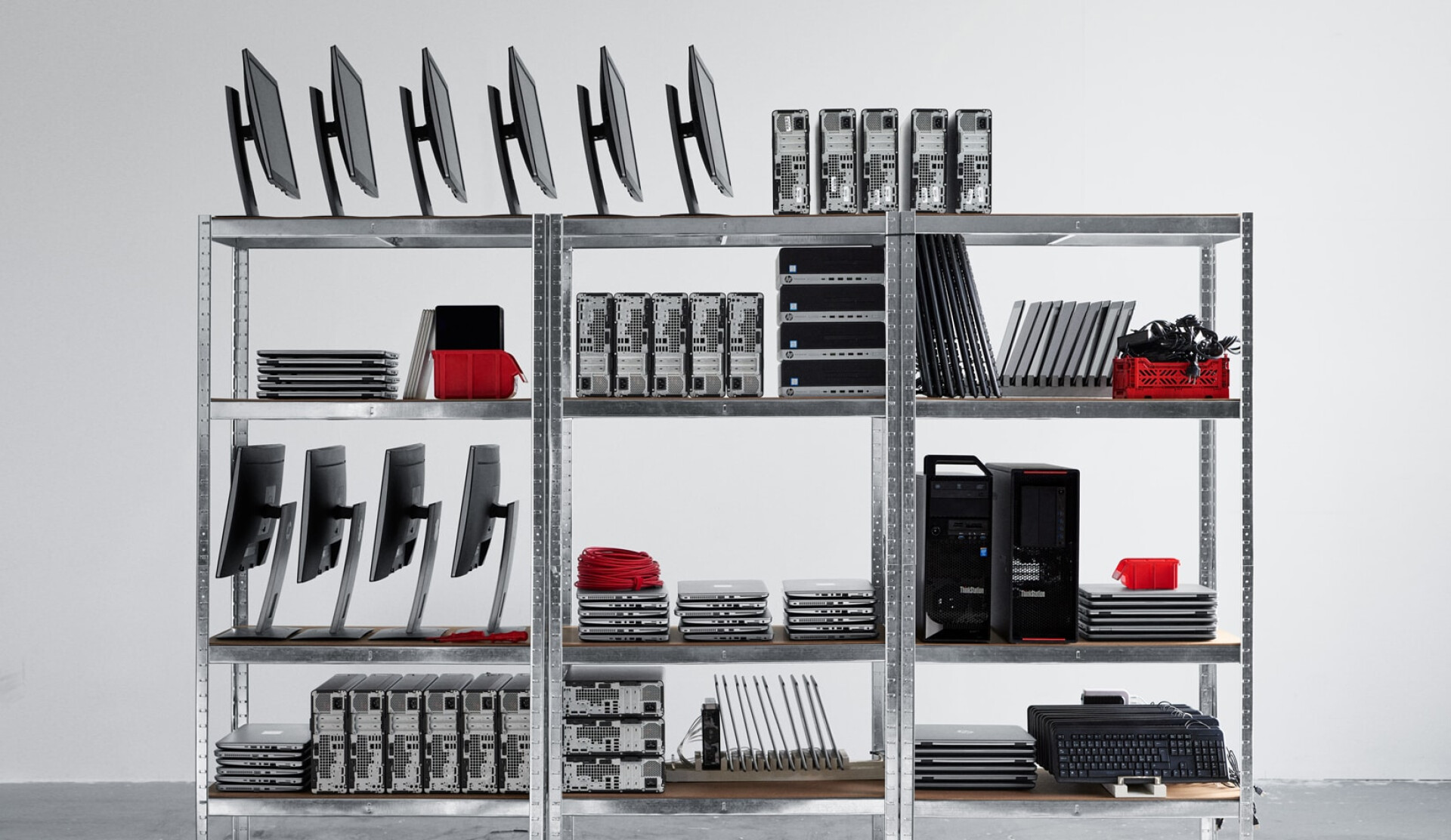Inrego has participated in the Innovera research project on remanufacturing, aimed at improving circularity for tech products.
Each year, more e-waste is discarded than the weight of the world’s heaviest man-made structure - the Great Wall of China. Since 2010, e-waste has increased by a staggering 82%, and less than a quarter of it is properly managed and recycled. E-waste is now the world’s fastest-growing waste stream.
At Inrego, we want to change that. Our vision is to transform the IT industry into a sustainable one, and we do that by refurbishing and extending the lifespan of IT products on a global scale. Every year, 350,000 IT products are given a second life thanks to our circular factory in Täby, Sweden.
Collaboration is key to the circular economy transition
Making the circular economy work in practice hinges on collaboration—between companies and organizations looking to sell or buy IT, but also with research institutions and policymakers driving forward design directives and regulations for a circular shift.
That’s why we at Inrego are proud to have taken part in the Innovera research project on remanufacturing—a project where researchers, experts, and tech companies came together to deepen their understanding of what’s possible when it comes to remanufacturing tech products.
“For Inrego, remanufacturing is the heart of everything we do. Without it, we wouldn’t exist. By supporting remanufacturing, we’re enabling better technology, more reuse-friendly product design, and a circular mindset in the market. This creates positive outcomes for both the environment and the economy—ours included,” says Valentina Falconi, Project Manager at Inrego.
Five product categories examined
The project involved disassembling five different product categories to explore new possibilities in design, material choices, and remanufacturing potential. The products included height-adjustable desks, phones, laptops, concrete saws, and electric batteries.
“Disassembling products together with companies and experts is a shared learning process—one of exploration and idea generation. It creates an environment where real problem-solving is in focus,” says Emme Enebog, project leader at RISE.
A shared learning arena
The project served as a platform for companies and researchers to come together and explore new avenues for remanufacturing within Swedish industry. The results were clear: disassembly in testbed environments unlocks new ways of thinking—about design, business models, and manufacturing techniques.
“By building on the work done so far, there’s huge potential to scale up remanufacturing—contributing to a more resource-efficient industry, reduced climate impact, and increased resilience in both society and business,” concludes Sasha Shahbazi, project manager for SuPr.
The project was funded by Vinnova, led by RISE, and carried out in collaboration with Linköping University and SuPr.

